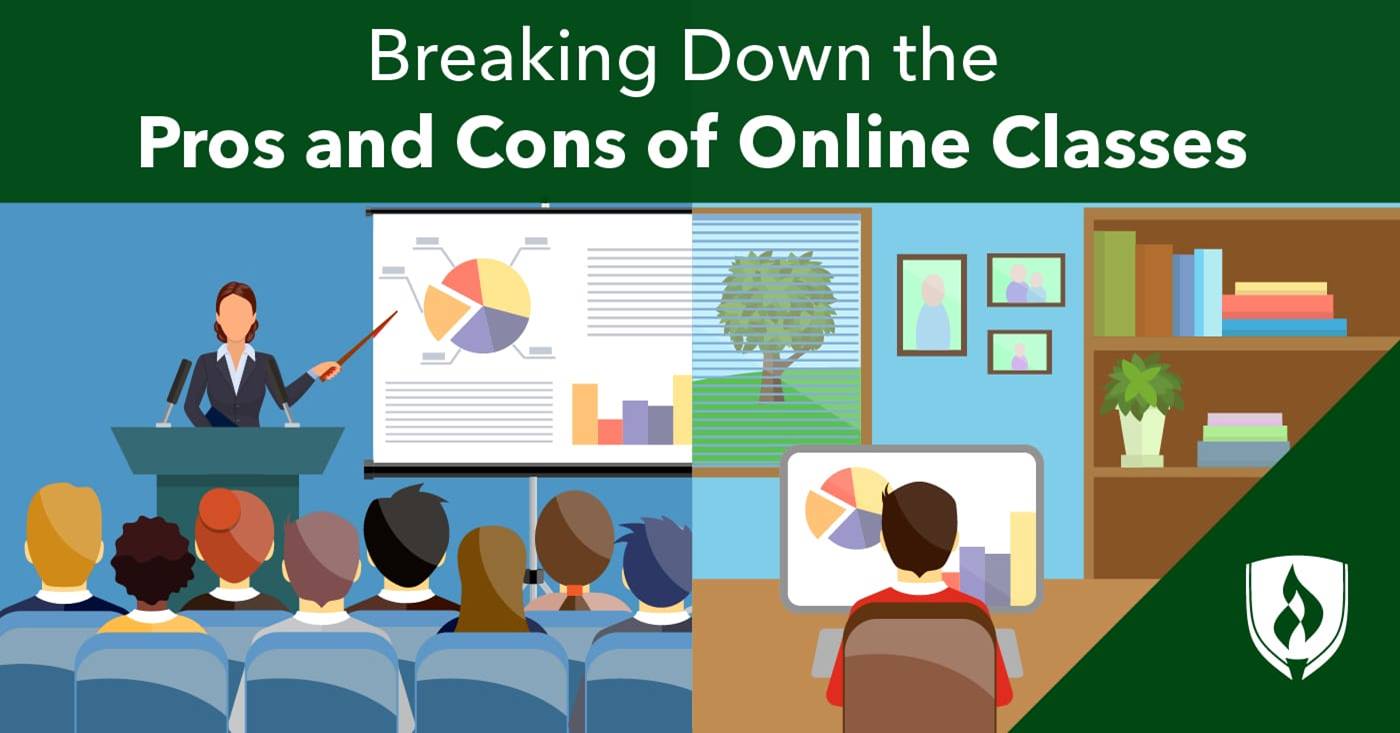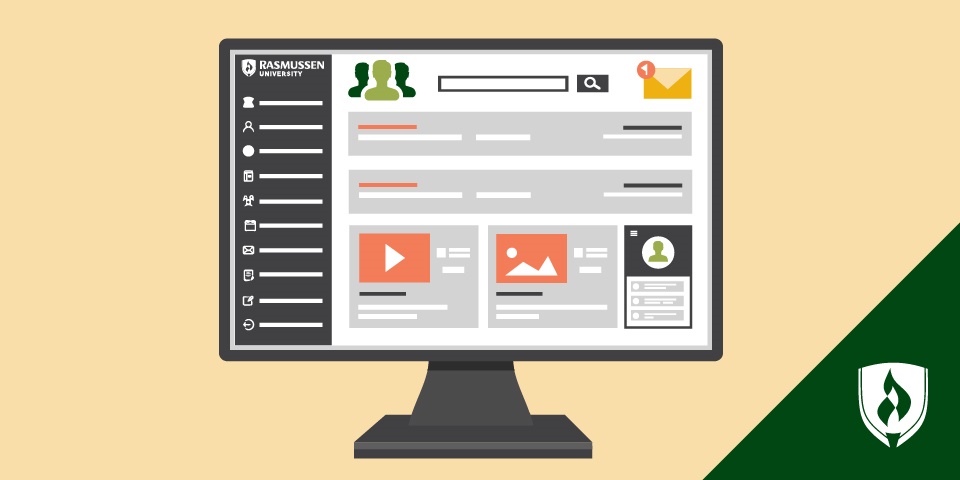The thought of going to college has always sounded exciting—until you consider the logistics. How will you take classes and get your kids to where they need to be? Will you be stuck in a classroom all evening instead of spending time with your family? What if you need to take a class and your only option is scheduled smack-dab in the middle of your regular work hours?

Fortunately, there’s a solution to many of these concerns: online classes. But online college courses seem almost too good to be true, and they may come with their own set of questions. Do you have what it takes to succeed at online courses? How can you know if this type of digital learning is the right fit for you?
You’re not alone in needing answers before you commit to an online education. We’re breaking down the pros and cons of online classes, complete with advice from students who have been in your shoes, so you can make the best decision for you when it comes to online courses.
Advantages of online classes
There are quite a few advantages of online classes that are worth your consideration. Here are some of the top benefits identified by online students.
Flexibility
One of the biggest advantages of online classes is the ability to fit your learning into your existing schedule. “I travel for work, and with online courses, I can complete the reading materials, assignments and tests from anywhere,” says Alex Tran of Hollingsworth LLC. “The flexibility helped me maintain a job while working on my education.”
Students of online classes are often given the freedom to complete lessons any time before a set deadline. This allows students to complete their coursework without sacrificing hours at their current job or precious time spent with family. Deadlines still need to be met, but your school schedule becomes much easier to adapt to your life schedule. Even better? Online courses may also be competency-based, which can give you the option to work ahead in courses you have a strong handle on—freeing up valuable study time for other courses on your plate for the term.
Potential cost savings
The expense of going to college is one of the biggest reasons aspiring students hold back from enrolling in a program. Online courses are often a more affordable way for students to earn a degree, helping to save money in a variety of ways. These potential savings aren’t always in the form of tuition, either.
“I did not have to pay for parking, spend money on gas and there was a lesser chance of me spending money eating out,” Tran says about her experience taking online courses.
In addition to sparing students the cost of traveling to campus, the flexibility of online learning often allows them to continue earning money at their existing job, which can help keep student loans manageable.
Location independence
Sometimes the program that’s the best fit for you is a long commute across town—or even in another state! That’s the situation J.J. Lewis, superintendent and CEO of Compass Charter Schools, found himself in when the program he wanted to enroll in was located several hours away.
“As the program was entirely online, I was able to participate and graduate from my preferred program,” Lewis says. “In an online program, there are no geographic restrictions.” Moving isn’t an option for many students. Online courses save the day by allowing you to enroll in the program that’s right for you, regardless of where you live.
Real-life career preparation
Going to college can be like living in a bubble: you learn valuable and necessary information, but you’re not always gaining the practical skills you’ll use every day in your new career. Online courses, however, require the same skill sets you’ll need in your future job.
“Online courses, especially in this day and age with technology, are very similar to working at a desk job,” Tran says. Staying in touch via email and project management software, managing your own time, working remotely with a team and completing projects on a deadline are all skills that translate directly to the workforce.
Disadvantages of online classes
While there’s plenty to like about taking online courses, that doesn’t mean they’ve reached a state of perfection. Here are a few of the potential disadvantages of online classes students may encounter.
Lack of peer interaction
Though many online classes encourage collaboration through group projects and forums, students may feel isolated from their peers when not sharing the same physical space. “One of the biggest disadvantages of online courses is missing out on the social element of going to class,” says writer Michael Alexis. “Sometimes just seeing classmates and chatting for a few minutes before a lecture can be an important social outlet.”
It’s not ideal for a student to sit alone with their computer throughout their entire degree program. However, Alexis points out that there are plenty of ways for online students to forge social connections on their own. “I recommend making an extra effort to get to know your digital classmates. You could organize a group video hangout and do icebreakers or facilitate a conversation.”
Potentially fewer professional networking opportunities
The lack of in-person interactions can extend beyond friendships and into the territory of professional networking. Oftentimes the relationships students build with peers and instructors in the classroom can be a stepping stone that helps them land their next job, or advance to a new position several years down the road.
Once again, students in online courses don’t have to miss out if they put in a little extra effort. “Make sure you find alternative ways to network and build career-supporting relationships,” says business networking expert Michelle Ngome. She suggests regularly meeting with classmates located nearby, or joining professional networking organizations related to your field of study.
Time-management challenges
The flexibility that comes with online classes can be a disadvantage if you struggle with time management. Without the accountability of a scheduled in-person class, some online students may have trouble managing their workload.
Luckily there are simple steps students can take to stay organized and avoid procrastination. “Create a schedule and structure that will work for you, to ensure you can balance your academic, personal and professional lives,” Lewis advises. Make a plan at the beginning of the semester to ensure you’re leaving enough time for your assignments and study sessions—and lean toward overestimating the amount of time you’ll need. Remember, online learning is just as demanding as an in-person class!
Take your learning online
Online degree programs aren’t always perfect for everyone, but they can make college more accessible for many students. Now that you’ve heard about the pros and cons of online courses from students who have been there, learn more about the online learning experience in our article, “What I Wish Someone Had Told Me BEFORE Taking Online Classes.”




